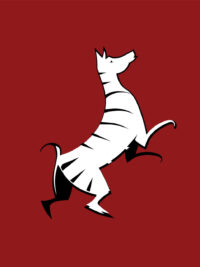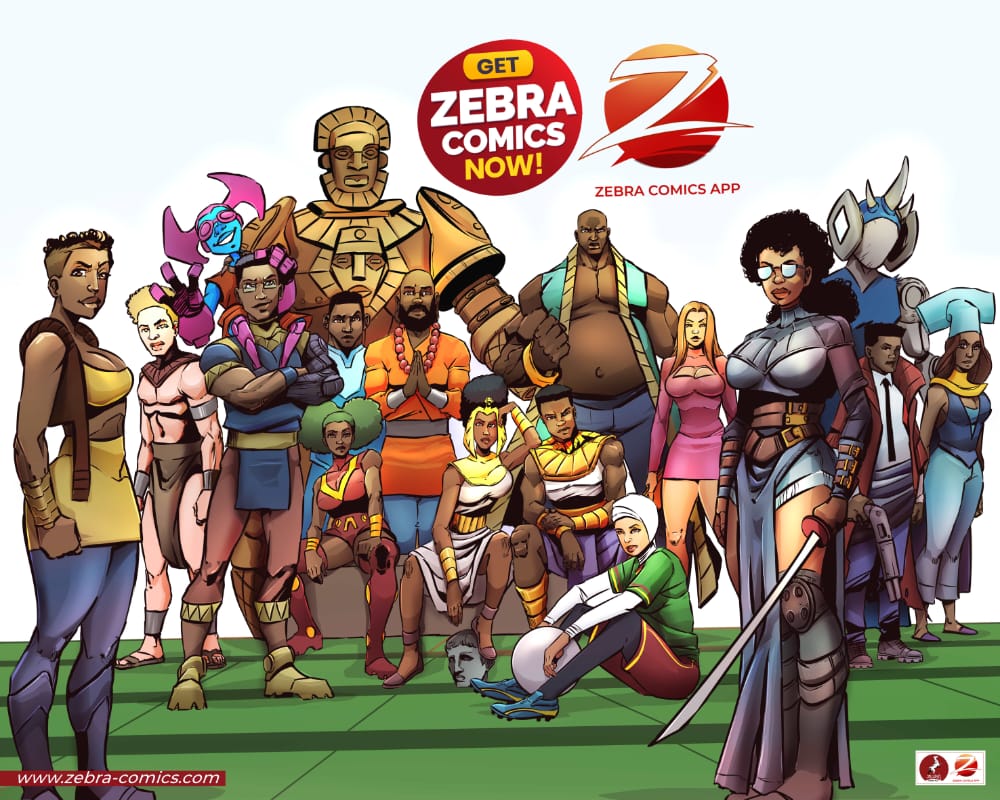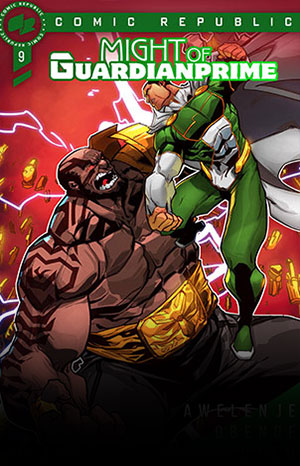Like many places in Africa, the creation of comics in Cameroon dates as far back as the 1960s. By then, there weren’t necessarily any comic books which were filled with well thought out stories and super powered characters who chased bandits in the hot neighbourhoods of Cameroon. What was available were newspaper publications which carried satirical comics strips. These strips were usually satirical pieces of happenings within the country, political and otherwise. And many people enjoyed these pieces, providing the basis for the continuous creation of these pieces.
The post-colonial history of Cameroonian comics began with the adventures of Sam Monfong, a fearless policeman. His adventures were published in La Gazette, under the brush of the cartoonist Thomas Durand Kiti. This was the first comic book hero in Cameroonian history. But Kiti had previously published the country’s first comic strip in the same newspaper in 1974. Afterwards, he worked as a journalist for the Cameroon Tribune, the only authorised daily newspaper in the country and the quasi-official organ of the government at the time. Kiti was the first cartoonist to caricature the then President of the Republic, Amadou Ahidjo, in the newspaper Cameroun Sports in 1982. In 1986, Kiti created the African Centre for Studies and Research on Comics and Cartoons. Without financial support, the centre was closed. Other series appeared in 1975, like Le grand duel, scripted and published by Macus, in about fifty issues between July 21 and September 25 1975. Although he was one of the precursors of the national 9th art and author of the first series, Macus remains relatively unknown to the Cameroonian public.

Other artists who laid the foundation for comics in post colonial Cameroon include Lémana Louis Marie, Janvier Mana and Jean Florent Goawé (Go’away). Lémana Louis Marie created the series Pep’s ballon, which tackled various social ills of the time (corruption, the place of women, etc.) in a humorous way. Later, he animated the page Les petits desseins du sourire for ten years, undoubtedly one of the most talented cartoonists in the country. After him came Janvier Mana, then in 1988 Jean Florent Goawé (Go’away), who developed a mischievous line in a column entitled Le sourire du jour. These cartoonists laid the foundations for press cartoons and comics in the country, before the liberalisation of the press in the early 1990s.
This way of creating and distributing comics persisted right into the nineties when a unique satirical comics based newspaper was launched. LE POPOLI was unique and remains unique to this day because it was a newspaper that disseminated news exclusively with caricatures and in the form of comics. Due to its dark humour and its focus on depicting political and social figures as caricatures, the newspaper gained a lot of success from the thousands of readers it garnered during its years. Naturally, it faced reprisal from the government, but it persisted.

At the same time, the first specialised publishers of comics in Cameroon, Editions Akoma Mba, saw the light of day. They came in to fill a void in the literary landscape that was already asking for more African and Cameroonian comic books. Until now, all of what people consumed as comics came from the United States, France and Japan. Marvel comics and DC comics like Spiderman and Batman, Franco Belgian comics like Blek Le Roc and Zembla, and Japanese manga like Dragon Ball were the only comics available to Cameroonians. There were one or two comics publications about Africa like Kouakou and L’Histoire du Cameroun, but these comics were created and published by Europeans. Editions Akoma Mba therefore came in to fill a void that had been existing for quite a while.

Between the nineties and the early 2000s, there was a slowdown in the comic book production and publishing landscape in cameroon. There weren’t many creators around and publishing was still very minimal. Then, Le Collectif A3 came around. Made up of passionate youngsters who were ready to make a life out of comics, this association began creating their own comics and selling at very affordable prices to comics lovers across the country. Members like Christian Bengono, Charles Patrice Afane, Noutchaya Herve, Georges Pondy and Yannick Deubou created comics like Vie de Jeune and Bitchakala magazine. Creators like Yannick Deubou even participated in international projects like “Visions d’Afrique”, which brought together adaptations of poignant works on colonisation, published in 2010 by L’Harmattan. Also, based on a script by Jean-François Chanson, Yannick Deubou Sikoué adapted the short story “An Outpost of Progress” by Joseph Conrad which garnered so much attention on his person.

Side by side all of these, newspapers like Cameroonian Tribune and Le Popoli, and magazines like 100% Jeune continued to publish comic strips. However, the most prominent action which gave new energy to the Cameroonian comic book industry and encouraged many more creators and publishers to emerge was the Mboa BD Festival. This is a comic book and geek event created by Le Collectif A3 and aimed at promoting all that is Cameroonian comics and geek culture. The first edition of this festival took place in 2009 and since then, it has helped Cameroonians, Africans and visitors from across the world to discover new talents and awesome projects from Cameroon and beyond.

Awesome comic books and magazines like CATY by George Pondy, La Vie d’Ebene Duta by Elyons, Zebra Comics Three in One (Aliya, Totem and Tumbu), Blacktrek Magazine, Mulatako by Reine Dibussi, Djo’o Bar by Hughes Biboum, Anaki by Ejob Nathanael Ejob, Android Night by Cedric Minlo, Mulema by Maitre Show and Le Mpoue by Martini Ngola all got the chance to see the light of day and get proper exposure thanks to the Mboa BD festival. New publishers also emerged like Waanda Comics, Zebra Comics PLC and 3AG Edition, evidence that the festival brought about real rejuvenation in the comic book sector in Cameroon.



With the advent of the internet, many more comic book creators are encouraged to create and share their works with the world. On social media platforms like Facebook and Instagram, it is common to see creations by young Cameroonians and they increase by the day. Many of them have been published locally and internationally and some are also exploring new comic book formats like webtoons.
Today, publishers like Zebra Comics PLC have gone even further with using the digital sphere to create and promote their works. The company has developed a subscription based android and iOS application, and a website, and they are investing heavily in the creation of digital comics and webtoons which are based on African cultures and traditions. Users of their platforms are therefore assured constant supply of original African comics, manga and webtoons on their digital platforms.

With growing interest in African comics and content from across the world, many more Cameroonian comic book creators will emerge. There will be a visible increase in the quality of productions (both in storytelling and art) and many more people will be interested in comics from Cameroon. So, if you were wondering if Cameroonian comics were any good, you can now be assured that they are actually great. And if you are looking for where to start reading and enjoying Cameroonian comics today, you can just start HERE.





Well researched. I didn’t know all these. It’s funny how at times, it feels like comics only began recently in Africa.